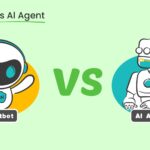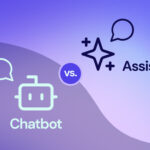I still remember when I was fresh out of school, staring into the abyss of career choices. Friends were divided some were obsessed with hacking, firewalls, and the thrill of cybersecurity, while others were drawn to artificial intelligence, a world of training machines to think and act like humans. At the time, I asked myself the same question you might be asking now: which is easy cybersecurity or artificial intelligence?
It sounds like a simple choice, but the truth is, both careers are exciting, challenging, and rewarding in different ways. The real difference isn’t about which one is “easier,” but rather which path aligns with your natural strengths, interests, and how you define problem solving. Are you drawn to building and innovating with data, or are you driven by the challenge of protecting and defending digital systems?
Let’s break it down together, step by step, to help you figure out which career is your ideal fit.
Table of Contents
Artificial Intelligence: The Dream of Teaching Machines to Think

What is AI, Really?
Artificial Intelligence (AI) isn’t just a buzzword you hear in tech podcasts or see in sci-fi movies. At its heart, AI is about creating systems that can mimic human intelligence. This includes everything from the recommendation engines that suggest your next binge-worthy show to the sophisticated algorithms powering self-driving cars, making real-time decisions on busy streets.
If you want a simple, beginner-friendly explainer, I’ve written a guide on what is AI that digs into the basics. But here, let’s stay focused on the career side of things.
Think of AI as a broad field with many specialized areas, including:
- Machine Learning (ML): A subfield of AI where machines learn from data without being explicitly programmed.
- Deep Learning (DL): A subfield of ML that uses neural networks to handle complex patterns and massive datasets.
- Natural Language Processing (NLP): Systems that can understand and process human language, like the chatbots you use every day.
- Computer Vision (CV): Algorithms that allow computers to “see” and interpret visual information, such as facial recognition.
Is AI Easy to Learn? The Steeper, More Rewarding Climb
This is where many people get stuck. The learning curve for AI can be steep, and it’s important to be honest about the commitment required. Unlike some tech fields, AI has a solid academic foundation. You’ll need a strong grasp of:
- Mathematics: Linear algebra, calculus, and especially statistics are non-negotiable. These are the languages that underpin how AI models work.
- Programming: Python is the undisputed king of AI, thanks to its rich ecosystem of libraries like TensorFlow, PyTorch, and scikit-learn. You’ll need to be comfortable not just writing code but also understanding complex algorithms and data structures.
- Data Fundamentals: AI is fueled by data. You’ll spend a significant amount of time cleaning, structuring, and analyzing massive amounts of data to prepare it for your models.
This might sound daunting, but the good news is that the resources available today are incredible. Platforms like Coursera, Udemy, and even free YouTube tutorials offer structured courses and hands-on projects that can take you from a total beginner to a proficient AI practitioner. But make no mistake: AI is not a weekend hobby. It requires patience, persistence, and a genuine passion for problem-solving.
Essential Skills for a Career in AI
If you’re considering an AI career, here’s a more detailed look at the toolkit you’ll need to build:
- Programming: A deep understanding of Python, with proficiency in data manipulation libraries like Pandas and NumPy, and visualization libraries like Matplotlib and Seaborn.
- Machine Learning & Deep Learning: Beyond theory, you’ll need practical experience with training models, understanding neural networks, and implementing different learning paradigms like supervised, unsupervised, and reinforcement learning.
- Data Science & Engineering: This involves everything from data collection and cleaning (often referred to as “data wrangling”) to feature engineering the process of using domain knowledge to create features that make machine learning algorithms work better.
- Cloud & Tools: Proficiency with cloud platforms like AWS, Azure, or Google Cloud is crucial for deploying and managing large-scale AI models. Familiarity with AI-specific frameworks like TensorFlow and PyTorch is a must.
At first, this list looks overwhelming. But remember, every expert started with a simple “Hello World” and a first project. The key is to start small and build your skills one step at a time.
AI Jobs and Career Options
The career spectrum in AI is broad, dynamic, and constantly evolving. You can become a:
- AI Engineer: The builders who design and implement the algorithms and infrastructure for AI systems.
- Machine Learning Engineer: Specialists who focus on the entire lifecycle of a machine learning model, from data pipelines to deployment and maintenance.
- Data Scientist: The storytellers of data, using statistical analysis and machine learning to extract insights and solve business problems.
- AI Researcher: Individuals pushing the boundaries of what’s possible, often working in academic or corporate research labs.
The demand for these roles is soaring across every major industry from healthcare to finance, from gaming to logistics.
Freelancing and Remote Work in AI
AI is a perfect fit for the modern freelance and remote work landscape. On platforms like Upwork and Fiverr, businesses are eager to hire freelancers for a wide range of projects, from developing custom chatbots and predictive analytics models to creating sophisticated recommendation engines. The rates are high, often starting at $30–$50/hour for beginners and scaling up to $150+/hour for experts. The remote-first nature of the work allows for incredible flexibility and the ability to work on a diverse portfolio of projects.
If freelancing is on your mind, you might enjoy my piece on is freelance writing hard with AI in 2025. While it’s about writing, the freelancing challenges and mindset are very similar across industries.
AI Salary and Growth Potential
Now for the fun part: money. AI jobs are among the highest-paying tech careers today, reflecting the specialized skills and high demand.
- Entry-level salaries: Often starting at $80,000–$100,000 annually in the US, sometimes even higher.
- Experienced AI engineers: Can command salaries in the $150,000–$200,000+ range.
- Freelancers: As mentioned, hourly rates are excellent, with top freelancers making six figures a year.
With AI becoming central to everything from marketing strategies to medical diagnostics, the growth potential is virtually limitless.
Pros and Cons of an AI Career
Pros:
- High salaries: You’ll be financially well-compensated for your expertise.
- Innovative, exciting projects: You get to work on cutting-edge technologies that are shaping the future.
- Future-proof skills: The demand for AI professionals is only going to increase.
Cons:
- Tough learning curve: The mathematical and theoretical foundations are challenging.
- Constantly evolving: The field moves at a breakneck pace, so you’ll always need to be learning.
- Highly competitive: Landing a top-tier job often requires a strong portfolio and, in many cases, an advanced degree.
Cybersecurity: The Guardians of the Digital World

What is Cybersecurity?
Cybersecurity is about defending digital systems, networks, and data against malicious attacks. Think of it as being the digital bodyguard for companies, governments, and individuals. From protecting your bank account from hackers to securing sensitive healthcare data, cybersecurity is everywhere and is a non-negotiable requirement for the modern world.
Cybersecurity professionals work to identify and mitigate a wide range of threats, including:
- Malware: Malicious software like viruses, Trojans, and ransomware.
- Phishing: Deceptive attempts to steal sensitive information.
- DDoS Attacks: Overwhelming a system with traffic to make it unavailable.
- Ransomware: Holding data hostage until a ransom is paid.
Is Cybersecurity Easy to Learn? A More Practical Path
Compared to AI, many people find cybersecurity more approachable. It’s less about advanced mathematics and more about practical, hands-on knowledge. Instead of complex theoretical models, you’ll focus on understanding how networks work, how systems are configured, and where vulnerabilities lie.
The learning path is often certification-driven, which can provide a clear and structured way to get started. Certifications like CompTIA Security+ or CEH (Certified Ethical Hacker) can give you a solid foundation and prove your skills to potential employers.
However, don’t mistake “easier to learn” with “easy to master.” Cyber threats evolve daily, and staying ahead of attackers requires constant vigilance and a deep curiosity.
Essential Skills for a Career in Cybersecurity
If you’re eyeing a career in cybersecurity, here’s a more detailed look at the hands-on skills you’ll need to develop:
- Networking: A deep understanding of TCP/IP, firewalls, routers, and VPNs is foundational. Security is built on top of a network, so you need to know how the underlying plumbing works.
- Operating Systems: Proficiency in Linux and Windows administration is critical, as you’ll be working with the operating systems that run the digital world.
- Security Tools: Hands-on experience with tools like Wireshark for network analysis, Kali Linux for penetration testing, and Metasploit for exploiting vulnerabilities.
- Scripting: Knowledge of scripting languages like Python, PowerShell, or Bash to automate tasks and create custom tools.
- Certifications: Beyond the initial certifications, advanced ones like CISSP (Certified Information Systems Security Professional) can open up senior-level and management roles.
Cybersecurity Jobs and Career Options
Cybersecurity careers are incredibly diverse, with roles available for every type of personality and skillset. You can become a:
- Security Analyst: The frontline defenders who monitor systems for threats, investigate incidents, and respond to attacks.
- Penetration Tester: The “ethical hackers” who legally break into systems to find vulnerabilities before malicious actors do.
- Cybersecurity Consultant: Professionals who advise businesses on their security posture, helping them build robust defense strategies.
- Chief Information Security Officer (CISO): The executive-level leader responsible for a company’s entire security strategy and program.
The universal demand for cybersecurity means that every business, no matter its size or industry, needs these skills.
Freelancing and Remote Work in Cybersecurity
Freelancing is a huge part of the cybersecurity world. One of the most popular paths is through bug bounty programs, where companies pay hackers who responsibly find and report vulnerabilities in their systems. This can be a lucrative side hustle or a full-time career for skilled individuals. Freelancers also find steady opportunities running security audits, penetration testing for small businesses, or helping with compliance checks. While earnings can vary, successful ethical hackers can make six figures annually from bug bounties alone.
Cybersecurity Salary and Growth Potential
The pay in cybersecurity is solid and reliable.
- Entry-level: Often starting at $60,000–$80,000 annually.
- Experienced professionals: Can earn between $120,000–$160,000+.
- Freelancers: Hourly rates can range from $20–$100/hour depending on specialization and experience.
Growth is steady and secure, driven by the simple fact that cyber threats will never stop evolving, and companies will always need human experts to protect them.
Pros and Cons of a Cybersecurity Career
Pros:
- Easier entry compared to AI: The learning path is often more practical and less mathematically intensive.
- High job demand: The need for security professionals is universal and constant.
- Certification-driven path: Certifications provide a clear roadmap for career progression.
Cons:
- Can be stressful: Defending against real-time attacks can be high-pressure.
- Requires constant vigilance: You must stay on top of the latest threats and vulnerabilities.
- Some tasks can feel repetitive: Monitoring logs and conducting routine audits can sometimes feel monotonous.
AI vs. Cybersecurity: A Side-by-Side Look
| Feature | Artificial Intelligence | Cybersecurity |
| Ease of Learning | Steep – Requires a strong foundation in math, statistics, and advanced programming. | More Approachable – Less math-intensive, more focused on practical skills and certifications. |
| Job Demand | Booming – High demand in innovative, tech-forward industries. | Evergreen – Constant demand across all industries due to perpetual threat of cybercrime. |
| Freelancing | High-value, project-based work like model training and custom solutions. | Steady opportunities in bug bounties, audits, and penetration testing. |
| Salary | Higher on average, especially at senior and expert levels. | Solid and reliable, with a faster entry into well-paying roles. |
| Career Growth | Limitless potential in a rapidly evolving field. | Stable and consistent due to the continuous nature of digital threats. |
which is easy cybersecurity or artificial intelligence
When we get down to it, the question isn’t which career is objectively easier, but rather which one is a better fit for you.
- If “easy” means a quicker entry with certifications and a clear, practical learning path, cybersecurity takes the crown.
- If “easy” for you means working on mind-bending, future-shaping technology and a potential for sky-high salaries (even if the learning curve is tough), then AI is the winner.
Your personality plays a huge role here. Do you enjoy complex math, intricate algorithms, and teaching machines to learn? Go for AI. Do you enjoy solving puzzles, protecting systems, and engaging in a constant battle of wits with attackers? Cybersecurity is probably your path.
Conclusion: Choosing the Path That Fits You
Both cybersecurity and artificial intelligence are valuable, respected, and financially rewarding careers. There’s no single right answer for everyone. The question isn’t really “which is easier?”—it’s “which feels easier and more exciting for you based on your skills and passions?”
When I think back to my own struggle with this decision, I realize the answer was inside me all along. If you’re more analytical and love the idea of creating something that learns and thinks, AI could be your playground. If you prefer the role of a guardian, outsmarting attackers and protecting what matters, cybersecurity could be your battlefield.
If you’re still unsure, you might like my piece on how to cautiously use AI for work. It shows how AI already integrates into everyday jobs, which could help you picture whether you want to build AI or protect against its misuse
Either way, you’ll be stepping into a field with a bright future. And who knows maybe you’ll combine the two someday. After all, AI systems also need cybersecurity to protect them from harm.
What are some common entry-level jobs in cybersecurity?
Entry-level roles often include Cybersecurity Analyst, Security Operations Center (SOC) Analyst, Junior Penetration Tester, or Security Technician. These roles focus on monitoring, incident response, and vulnerability testing.
What are some common entry-level jobs in AI?
For those with a technical background, you might start as a Junior AI Engineer or Machine Learning Operations (MLOps) Assistant. For those with a less technical background, roles like AI Data Annotation Specialist, AI Prompt Engineer, or AI Content Creator are common entry points.
Which field requires more math?
AI generally requires a stronger math foundation, particularly in linear algebra, calculus, and statistics. Cybersecurity is more focused on practical, hands-on skills related to networking, systems, and security protocols.
What certifications are most valuable for a cybersecurity career?
For beginners, the CompTIA Security+ is a great starting point. As you advance, certifications like CEH (Certified Ethical Hacker), CISSP, and vendor-specific certs from companies like Cisco or AWS become highly valuable.






Leave a Comment